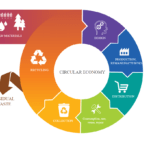Revamping EU regional policy
During a plenary session in June 2021, Parliament adopted a cohesion package, including the main regional funds the European Regional Development and Cohesion Fund and the European Territorial Goal of the regional policy (Interreg), as well as a set of goals for the funds – the Common Provisions Regulation.
Supporting smart and sustainable growth in EU regions
The new cohesion policy should simplify procedures, make investments more effective and align with the transition of the regions to a climate-neutral Europe, as part of the Green Deal and the Covid-19 crisis recovery.
A substantial part of the funding will go to projects promoting smart growth and the green economy. In the future, the EU’s cohesion policy should:
- Redirect at least 30% of regional funding to climate action
- Respect environmental, climate, biodiversity and circular economy objectives
- Invest in sustainable growth and job creation
- Offer tailored support to outermost regions, islands and depopulated areas
- Focus on research and innovation
- Allocate at least 8% of the European Regional Development and Cohesion Fund resources to sustainable urban development
Nuclear power and fossil fuels are excluded, aside from projects replacing coal with natural gas, which are eligible for funding before 31 December 2025.
To help regions recover from the Covid crisis, the funds are expected to support culture, sustainable tourism, digitalisation as well as provide for more resilient public health systems.
Financing the regional development and cooperation
Funding for the cohesion policy comes partly from the EU’s long-term budget and from Next Generation EU, a recovery package to support EU countries affected by the Covid-19 pandemic.
The European Regional Development Fund
-
Created in 1975
-
Aims to redress regional imbalances, supporting areas whose development is lagging and converting declining industrial regions
-
Supports regions suffering from severe and permanent natural or demographic handicaps
Interreg
-
Launched in 1990
-
Helps cross-border health, green and other projects
-
Supports cross-border, transnational, interregional cooperation and outermost regions
-
Will provide funding for climate action and social programmes, including public health, as well as small projects
The Cohesion Fund
-
Set up in 1994
-
Backs environmental and trans-European network projects
-
Finances projects falling under the Investment for growth and jobs cohesion goal
-
Goes to less developed regions in EU countries with a gross national income below 90% of the EU average
Other financial support for regions
As part of the climate investment plan, the Just Transition Fund aims to support territories relying on fossil fuels and most affected by the transition towards climate neutrality.
Parliament approved the Just Transition Fund in May 2021, which will receive €7.5 billion from the EU budget for 2021-2027 and €10 billion from the EU Recovery Instrument.
In addition, European regions will receive help through ReactEU, the new instrument to help the sectors most affected by the economic impact of the pandemic.






Leave a Reply